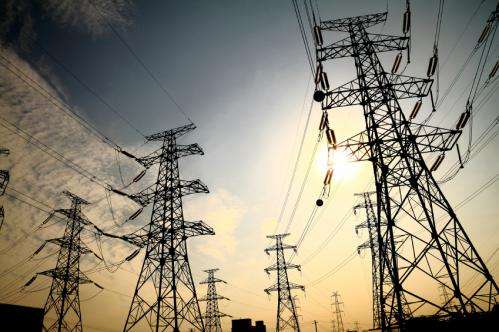Consumers worry about energy's impact on environment regardless of income

(Phys.org) —Rich, poor or in-between, American consumers express an equal degree of personal worry about the impact of energy use on the environment, according to the newest findings of the University of Michigan Energy Survey.
A joint effort of the U-M Energy Institute and Institute for Social Research, the quarterly survey of a nationally representative sample of 500 households gauges consumer perceptions and beliefs about key energy-related concerns including affordability, reliability and impact on the environment.
Respondents were asked how much they personally worry about three factors: energy reliability, affordability and environmental impact. Researchers found that respondents in the lowest of three income brackets worried about reliability and affordability of energy more than those in the top and middle-income thirds. However, the percentage of respondents who reported worrying a "great deal" or a "fair amount" about energy's environmental impact held steady across all three income brackets, averaging close to 60 percent.
The survey was conducted in January 2014 while parts of the country were experiencing frigid weather and regional increases in energy prices. Nevertheless, consumers consistently expressed at least as much concern for the energy's environmental impact as they did for its affordability.
"The fact that U.S. consumers care as much about the environmental impact of energy as they do about its affordability was a surprise finding from our first round of data, collected in October 2013," said John DeCicco, U-M Energy Institute research professor and survey director. The second round of U-M Energy Survey data shows that this result was no seasonal anomaly.
"In fact," DeCicco said, "the January data strengthen the statistical significance of American consumers' uniformly high degree of concern about the environment even in relation to core issues such as energy costs."
The U-M Energy Survey also probed consumers' expectations about their energy bills and the cost levels that would find to be unaffordable. Although average self-reported home energy bills rose from October to January (as expected based on the weather), the level that would be considered unaffordable did not change significantly, averaging out to roughly $420 per month.
How much consumers felt that their bills would have to increase before becoming unaffordable was found to vary by income bracket. If energy bills doubled (a 100 percent increase), they would be seen as unaffordable by the lower third of households according to income bracket. Consumers in the middle-income bracket view a 130 percent increase as unaffordable. However, energy bills would have to roughly triple (a 200 percent increase) before being seen as unaffordable to consumers in the top third of self-reported household income.
Compared to home energy bills, "consumers express much less tolerance for gasoline price hikes," notes DeCicco. As might be expected, the gasoline price that consumers would see as unaffordable varies by income. But on average, an 84 percent increase, to roughly $5.90 per gallon, would push consumers to where they felt they'd have to make significant changes in their vehicle use or how they travel. That's in comparison to the roughly 145 percent increase in home energy bills that would be seen as unaffordable to consumers on average.
The U-M Energy Survey is administered four times a year through a set of questions added quarterly to the Thomson Reuters/University of Michigan Surveys of Consumers, conducted by ISR since 1946. Energy data will be made available through public archives generally less than a year after each new sample is analyzed.
More information: The complete energy survey report is available online: energy.umich.edu/file/um-energ … port-june-24-2014pdf
Provided by University of Michigan




















